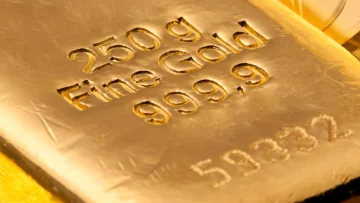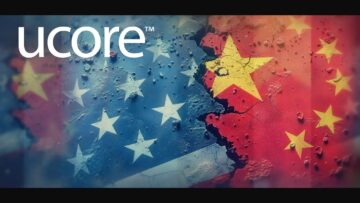Strategic course has long since been set
What colonies were in earlier centuries, space is today: a springboard to greater prosperity and power. Politically, all states are interested in gaining more power and influence; economically, their efforts are aimed at maintaining and increasing the prosperity of their peoples. Whereas this competition for power and resources used to be fought in the colonies, today it has shifted to space and, just as companies such as the Dutch United East India Company rose to become important players in global competition in earlier years, young, up-and-coming companies such as Rocket Lab (NASDAQ: RKLB, WKN: A3CY7P) or AST SpaceMobile (NASDAQ: ASTS, WKN: A3CL8W) are competing with each other to secure a piece of this extremely attractive pie.
Against this background, it is therefore inappropriate to believe that the space race was decided forever with the American moon landing in 1969. Rather the opposite is the case. The race goes on and the Olympic motto “being there is everything” does not get to the heart of the matter either, because it is no longer enough just to be there. If you really want to benefit from the possibilities of space, you don’t just have to be there, you have to be at the forefront and always be a step ahead of your competitors from all over the world.
This also makes it clear that it is not enough to think of the space race as a marathon. Although this is the longest race in athletics, it also ends after 42.195 kilometers. Such an end is not to be expected in the space race. Rather, it will be an eternal, never-ending race and it is not enough to have conquered the top spot once, but it must also be permanently maintained against the competition.
A new era of exploration and competition has begun in space
In 2024, government spending on space exploration reached a new record of 135 billion US dollars. Never before have countries around the world spent more money on having a presence in space. Nevertheless, it is expected that this record will be broken in just a few years. At this point, the world is experiencing a transformative era in space exploration and the beginning of a new geopolitical race for dominance in the future space economy.
This state competition is not fundamentally new, as the available resources have always aroused the covetousness of many players. Even Hannibal fought with the Romans over the copper in the Spanish mines and between the 15th and 18th centuries, European states competed for the known trade routes and raw materials. During the colonial era, the competition was mainly fought on the borders of the then known world. However, since the map has hardly any blank spots left, the struggle has increasingly shifted to those regions that man has not yet tapped into.
In addition to the Arctic and Antarctic, the focus is increasingly shifting to outer space. It still promises a vastness that has long since ceased to exist on Earth itself. The dynamics of this development can be compared very well with the history of colonialism, because then as now, the race for a place in the sun is characterized by a growing gap between pioneers and laggards.
Sloth and complacency are punished
The question of which power should be regarded as the leading colonial power is answered very differently depending on which century you look at. In the 15th and 16th centuries, Spain and Portugal were the leading powers, as both countries controlled access to gold, silver and spices. Their dominance ended when both economies became too dependent on the income from the colonies.
While the Spanish and Portuguese economies stagnated, the Netherlands increasingly came to the fore as the leading trading power. The Dutch benefited from the innovative strength and financial power of the United East India Company (VOC). Its spectacular successes had a decisive influence on this early phase of capitalism. The recipe is being used again today, as the US trade partnerships with SpaceX and other private companies basically mirror the successful concept of the East India Company and adapt it to modern circumstances.
However, the dominance of the Dutch did not last indefinitely. France and Great Britain emerged as fierce competitors in the 18th and 19th centuries. The French made the mistake of relying too heavily on their Caribbean colonies. This diminished their prosperity in the long term. Great Britain, on the other hand, used the profits it made in its colonies to drive forward the industrial revolution in its own country.
What today, in retrospect, sometimes appears to us as a clear line of development was, however, often a mixture of mistakes and innovations that were made. In the phases of transition, the mistakes were too often made by the leading nations, while the innovations were the forces that pushed the successors ever further forward and ultimately to the top.
The technology has changed, but the methods are often still the same
For the colonial powers, ships were the means of choice to secure access to the earth’s terrestrial resources. Today, heads of state and government are competing for access to extraterrestrial resources through satellite networks and strategic positions in the solar system. The United States and China are currently at the forefront of this competition. Both have the largest budgets and are acting with clear priorities. Europe, meanwhile, is in danger of falling behind. The solution here can only be to pool the highly fragmented efforts to date and modernize the existing systems.
Just as the colonial era reshaped the global economy, the space race will shape the 21st century, with the winners setting the course for the future of humanity in the cosmos. If the historical mistakes are not to be made a second time, all players must balance ambition and collaboration, innovation and sustainability, as well as short-term gains and long-term visions.
The strategic course has long since been set
The current space race is more than just a continued exploration of space, as strategic priorities need to be set now and economic challenges need to be tackled. Even if many people are not yet fully aware of this: Basically, it is already about building the foundations of a new economy.
Rocket Lab and AST SpaceMobile are already very well positioned in this race for the future, because space exploration will not succeed without sophisticated rocket technology. Rocket Lab is currently developing a leading position in this field. The company is deliberately focusing on a niche and has chosen a size for the rocket launches it offers that is considered too small and therefore too unattractive by the established top dogs. However, this field is ideal for a newcomer, as a young company can build up its own position relatively undisturbed and make a name for itself with a large number of qualified rocket launches.
AST SpaceMobile has turned its focus to another equally important area: communication. Without it, nothing would work in our modern world, and the development of space cannot succeed without functioning communication. What trade routes and shipping lanes were to the 18th and 19th centuries, satellites and space stations will be to the future. They will be one of the key factors in pushing back boundaries and opening up new possibilities. This is why both Rocket Lab and AST SpaceMobile are well positioned to benefit from the new gold rush in space.
Disclaimer: GOLDINVEST Consulting GmbH publishes comments, analyses and news on https://goldinvest.de. These contents are exclusively for the information of the readers and do not represent a call to action, neither explicitly nor implicitly they are to be understood as an assurance of possible price developments. Furthermore, they are in no way a substitute for individual expert investment advice and do not constitute an offer to sell the discussed stock(s) or a solicitation to buy or sell securities. It is expressly not a financial analysis, but a promotional/journalistic text. Readers who make investment decisions or execute transactions on the basis of the information provided here do so exclusively at their own risk. There is no contractual relationship between GOLDINVEST Consulting GmbH and its readers or the users of its offers, because our information refers only to the company, but not to the investment decision of the reader.
The acquisition of securities is associated with high risks, which can lead to a total loss of the invested capital. The information published by GOLDINVEST Consulting GmbH and its authors is based on careful research. Nevertheless, any liability for financial losses or the content guarantee for topicality, correctness, adequacy and completeness of the articles offered here is expressly excluded. Please also note our terms of use.
Pursuant to §34b WpHG and §48f Abs. 5 BörseG (Austria) we point out that GOLDINVEST Consulting GmbH and/or partners, principals or employees of GOLDINVEST Consulting GmbH hold shares in Ucore Rare Metals and therefore a conflict of interest exists. GOLDINVEST Consulting GmbH also reserves the right to buy or sell shares of the company at any time. In addition, GOLDINVEST Consulting GmbH is remunerated by Ucore Rare Metals for reporting on the company. This is another clear conflict of interest.



















